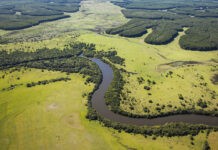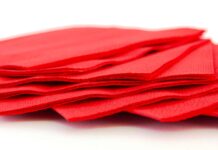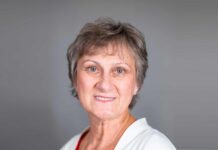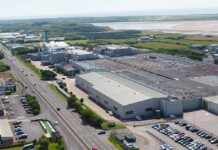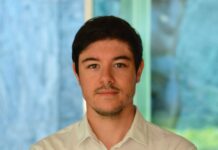Tissue World interviews the world’s main tissue machinery manufacturers to get the latest on their technical and commercial know-how
TW/1: WHAT HAVE BEEN THE MOST IMPORTANT TECHNICAL DEVELOPMENTS AT YOUR COMPANY DURING 2013 AND WHAT CAN WE EXPECT IN 2014?
Rogério Berardi, global vice president for tissue machines, Voith Paper:
“We have been working on a technology that makes tissue production more energy-efficient and increases paper quality. As soon as we have finished all tests, we will be able to present this new solution.”
Marcelo Santos, application engineer, Hergen:
“In 2013 we established our new tissue machine families which offer small mills as well as big players high quality solutions at a fair cost. We have also developed the shoe press solution for tissue which is designed to reduce energy consumption on high quality tissue production. In 2014, we expect to consolidate Hergen as a reference company to supply Steel Yankee dryers and by the beginning of the second trimester we will start up our new manufacturing facilities that will enable us to reduce delivery time and broaden the size range we offer with diameters from 2,500mm to 7,320mm and with a paper width of 5,600mm.”
Shinji Goda, manager, design department, Kawanoe Zoki:
“Our BF tissue machine pursues energy saving technology. The development of our BF-1000 series aims at cutting energy consumption while increasing production capacity by optimizing every component and device in the BF tissue machine.
“In 2014, BF-1000A, which boasts even higher production and high efficiency, will be introduced to the market. We will also launch our tissue converting machine business overseas.”
‘Clients face three major challenges – request for better paper quality by consumers and supermarkets, higher costs, and at the same time to be as sustainable as possible.’
Voith’s Rogério Berardi
Ingmar Andersson, sales manager, tissue mills, Metso:
“The Advantage NTT technology has undertaken full commercial operation confirming high speed operation and production capacity that has exceeded any other technology due to the technical refinements made.”
Davide Mainardi, sales and customer care director, Toscotec:
“Our most important technical developments in 2013 were generated by a wide variety of design solutions and R&D that we offer along with our sister company Milltech. We have supplied the tissue industry with several types of machines that have a wide variety of drying solutions starting from the application of our second generation of Steel Yankee TT SYD with exhaust hoods, gas fired hoods, steam heated hoods and hybrid hoods. This last application was very successful in countries where a lack of natural gas is an issue.
“Cogeneration application was also a very sensitive subject that we have been worked with great success in practical field application. Among the different new concepts we have introduced into the market we can list: TT DOES (new modular approach, available both for rebuilds and for new production lines, combining the application of the last technology developments of the TT Pressing System, TT SYD and the low carbon footprint Milltech Yankee Hood), and TT SAF (the energy saving solution for the approach flow).”
Marco Ginesi, senior sales application engineer, Recard:
“We have developed and installed a new concept of tissue machine named “Easy Crescent”. The main characteristics of this machine are: reduced civil works delivery time and costs, reduced erection time and costs, consequent reduced total project costs, reduced energy consumption, easier maintenance and easier operation.
“This solution is the natural development from the experiences gained from more than 50 years of activity and manufacturing and installation of 118 tissue machines across five continents. The tissue machine is designed according to the most modern concepts and technical solutions and keeps the features of all Recard machines. Even in the year 2014 we will focus our attention in developing energy saving solutions.”
‘In 2014, BF-1000A, which boasts even higher production and high efficiency, will be introduced to the market.’
Kawanoe Zoki’s Shinji Goda
Ivo Olibano, sales and customer care director, A. Celli:
“Traditionally, A. Celli Paper has focused on development and technical innovation. Today, technical differences among companies are minimal and attention to detail is the focus point. A. Celli’s production is pursued along two macro categories: paper machines and rewinders. In 2013, we presented our non-stop rewinder with automatic reel change during It’s Tissue in June. This will also be our point of strength for 2014: energy savings across the entire line. We will also pursue our focus on greater customer attention and satisfaction. We will be working on all PM components with a view towards this. In 2014, special attention will also be given to our machine for structured paper: it’s a machine with similar features to TAD, but with extremely reduced energy costs, thus meaning great savings.”
TW/2: WHAT ARE THE KEY TECHNICAL OPPORTUNITIES AND CHALLENGES FACING YOUR CLIENTS?
Rogério Berardi: “Our clients are facing three major challenges today: request for better paper quality by end consumers and supermarkets, higher costs, mainly energy, and at the same time to be as sustainable as possible. To respond to this, our goal is to be our clients’ partner as well as a technology leader and in the last six years we developed major breakthrough technologies:
- The ATMOS technology for premium tissue production with 60% less energy consumption and much simpler operation than other available technologies in the market for premium tissue production. Right now, there are five installations up and running successfully in developing and developed continents such as South & North America and Western Europe.
- The second generation of shoe press, named NipcoFlex T, which is able to decrease energy consumption up to 15% and increase bulk by 5%. As a good example of its success in the market, in just four years more than 15 new shoe presses were sold in all major markets from all continents worldwide including South and North America, China, western and eastern Europe.
- The Voith Steel Yankee with robust design delivering the same reliability as the Voith Cast Iron Yankee cylinders. In only three years of existence, more than five Voith Steel Yankees were sold and some are already in operation.
- As Voith offers clients worldwide products for the entire tissue process, we have also worked to develop new technologies in other areas, such as:
- Stock Preparation with the new IntensaPulper for 30% less pulping energy, the TwinFlow refiner with Pluralis disc;
- Fabrics and rolls with the new Evolution press felt for conventional tissue machines, SolarSoft covers for suction press rolls, both for higher after press dryness, thus, less thermal energy usage.”
‘Energy issues, sustainability, user-friendly machines and more usages of short fibres have created the need to develop customised solutions.’
Toscotec’s Davide Mainaidi
Marcelo Santos: “In our market energy consumption reduction is the biggest challenge our clients are facing. For Hergen, this is a great opportunity to supply our Steel Yankee Dryers. Recently we have replaced some cast iron dryers and our customers are pretty satisfied with production increase in some cases up to 20%. Cases like this have a huge impact on the tissue market and for the coming years we believe we will have more and more similar opportunities.”
Shinji Goda: “A decline in operation efficiency and technical skills resulting from a shortage of skilled technicians and operators exemplifies the challenges our clients face. Our services and products ensure efficient and stable operations that are less dependent on operators’ skill. Sophisticated usability and functionality in our technology improve operational environments and sets a new standard for machine operation.”
Ingmar Andersson: “New technologies are launched continually, it is challenging to make investment decisions and when to take on such new opportunities and abandon the existing ones used.”
Davide Mainardi: “Most of our implementations have been applied thanks to the continuous cooperation with final end users. We are the company that has introduced into the market the revolutionary Steel Dryer and our lengthy experience of 13 years puts us at a primary position if compared with our competitors. When we introduced it there was a lot of concern due to the conservative vision of the industry.
“Another important issue that brings us closer to our customers is that we really are now a global supplier that offers a wide range of solutions from stock preparation, tissue machines (conventional and TAD up to 6m wide), Steel Dryers (up to 22’ diameter and 8.2m shell width), hoods and drying solutions, up to winders. Our add-on value then lies in the capability to manage turnkey solutions and complex rebuilds that support the customer from the start of the project’s evaluation phase. Our implemented service and follow up offers portfolio, as well as our worldwide presence with agencies and with two subsidiary companies in China (TT Asia and Pacific) and the United States (TT North America) can close the whole cycle of the tissue machinery business.”
‘Emerging markets are mostly looking for proven technology at reasonable cost. However, energy and water conservation are also becoming important.’
Metso’s Ingmar Andersson
Marco Ginesi: “The main challenges and opportunities are the reduction of energy consumption, plant reliability and the “user-friendliness” of the paper machine. By means of our large experience in the tissue field we have been able to simplify our machinery by increasing its performances and reliability.”
Ivo Olibano: “Customer care and customer service are determining factors. Our relationship with customers, our speed in answering their needs and demands is a great asset. In 2013, we implemented MySp@res® – an innovative system for the handling and managing spare parts. MySp@res® is the innovative on-line post-sales support service where customers can find, localise and request an estimate for every spare parts component, quickly and easily accessing information on their machines and best managing data, processes, resources and the lifecycle of their equipment, for greater efficiency in promptly answering the demands of an increasingly frenetic market. We will continue investing on this.”
TW/3: WHAT TECHNICAL DEVELOPMENTS HAVE YOU MADE IN TERMS OF ENERGY?
Rogério Berardi: “ATMOS for premium quality, NipcoFlex T for conventional quality, Steel Yankee, IntensaPulper, Pluralis refiner discs, Evolution press felt, SolarSoft, etc.”
Marcelo Santos: “In addition to Steel Yankee Dryers, we have developed the shoe press for tissue that targets the reduction of steam consumption on high quality tissue production. This technology can reduce the required drying energy by up to 20%.”
Shinji Goda: “Today, energy saving and efficiency hold the key to success in any industry and our pursuit remains focused on this open-ended challenge. Examples such as heat-recovery systems, high-efficiency Yankee hood and CBC creping blade control have been a great success and contributed to energy saving in tissue making.
“High efficient refiner, BF-DD6000, which applies spline-technology, is another example of our approach to cutting energy consumption.”
Ingmar Andersson: “A new version of the Advantage ViscoNip press delivering outstanding dryness thus further reducing energy for drying.”
Davide Mainardi: “In addition to our continuous evolution and efforts, we continue to invest in the optimisation of headboxes, new pressing technology, the second generation of TT SYD (low energy consumption and low carbon footprint) and heat recovery in the steam and hood circuit. During the past two years, we have worked on continuing to optimise solutions to save energy and fibre in the whole process. Pulping is one of the most energy demanding processes and we have developed and launched the TTPulper – VP, a new series of medium consistency pulpers with very efficient slushing and low power consumption.
“Refiners have also been studied in order to propose the right fillings pattern depending on the fibre type and application. Within the TT SAF® (Short Approach Flow), a new Pressure Screen – AFS series has been designed, with high de-flocculation effect and low power consumption.
“In terms of process plant optimisation, the whole concept of the same plant has been revisited due to the adoption of 3D plant modelling during the design phase.”
Marco Ginesi: “We have developed the Easy Crescent concept that produces paper with low energy consumption.
In February 2013 we started up a turnkey plant in Tunisia equipped with cogeneration system using the exhaust fumes coming out from the gas turbine to feed a recovery boiler and the Yankee hood. We optimised the plant’s energy consumption because all the steam and hood hot air necessary to run the paper machine is produced by the energy contained in the turbine exhaust air.
“We are also giving a lot of attention to stock preparation and approach flow systems by designing them with the purpose of simplify them and reduce their energy consumption.”
‘We are giving a lot of attention to stock preparation and approach flow systems.’
Recard’s Marco Ginesi
Ivo Olibano: “Attention to energy savings is a fundamental part of our strategy for the optimisation of every aspect of production. Special attention is focused on the Steel Yankee and heads insulation. The A. Celli patent for this product is innovative and leads to big energy savings.”
TW/4: WHAT TRENDS ARE YOU SEEING IN TERMS OF TECHNICAL DEVELOPMENTS IN EMERGING ECONOMIES?
Rogério Berardi: “Emerging economies such as the BRICS are all requesting better paper quality as the standard of living improves every day. The issue of sustainability had been neglected in many emerging markets over recent years but this is becoming more and more important as these economies develop.”
Marcelo Santos: “One issue that is common to most emerging economies is the lack of gas, so for these countries we believe the machines will feature a big Steel Yankee dryer and one steam heated hood (or even an extraction hood). This combination is quite successful in countries such as China where many machines with such configuration have been recently installed. On such projects the use of a Steel Dryer is quite an advantage compared to the standard cast iron because it is safer and gives far better results from a production point of view. The project for such countries must foresee the rational use of fresh water which is an important issue not only for emerging economies but also worldwide.”
‘All companies are looking for ways to improve production and save energy and the Steel Dryer is the easiest way to achieve both.’
Hergen’s Marcelo Santos
Shinji Goda: “It is very difficult to generalise the technical developments in emerging countries where such variety of needs exists. We believe it is important to offer a machine which suits and satisfies market needs respectively. Our expertise in total engineering and wide product range will satisfy each client’s specific needs, such as initial investment cost, running cost, payout time and utility consumptions.”
Ingmar Andersson: “Emerging markets are mostly looking for proven technology at reasonable cost. However, energy and water conservation are also becoming important.”
Davide Mainardi: “If we are looking to the BRIC countries there are different approaches to the business because of a variety of factors such as energy availability, raw materials, market requirements and country habits. The factors in machinery design are different; mostly the areas of focus are the usage of different types of raw materials, from bagasse to slush pulp, from waste paper to virgin pulp, energy and sustainability factors and the quality of the final products. Africa is also becoming a good opportunity. In this case the technology gap if compared with western Europe still exists even if there are already some good examples of advanced technology application especially in the waste paper process.”
‘Special attention is focused on the Steel Yankee and heads insulation. The A. Celli patent for this product is innovative and leads to big energy savings.’
A. Celli’s Ivo Olibano
Marco Ginesi: “Emerging economies are looking for reliable and easy to operate machines, low energy consumption plants and good technical support from the supplier. Since its origin, Recard has focused on satisfying over and above customer needs.”
Ivo Olibano: “In emerging countries, qualified machines are needed. These are areas that do not require very high production rates (30-40tpd) but they still require attention to technology (efficiency, reliability, quality). The tissue industry follows the converting field as far as developments/innovations are concerned because it’s a more innovative field per se than papermaking. The A. Celli companies are working on the need to propose crescent former type machines that are also appropriate for smaller production.”
TW/5. IN TERMS OF TECHNOLOGY, HOW WILL THE TISSUE INDUSTRY HAVE CHANGED IN FIVE YEARS TIME?
Rogério Berardi: “The progress of the tissue industry will substantially depend on global economic stability and growth and therefore will provide a better and more stable standard of living in emerging countries and developed countries and regions such as the USA and western Europe. Rising energy costs will play an important role in major markets and the developments for oil/gas supply in the US can change the tissue industry footprint in that important market.
“Having said that, all new developments will continue to target less energy consumption, higher paper quality and less environment impact in both emerging and developed countries.”
Marcelo Santos: “We believe that within five years Steel Yankee dryers will outnumber standard cast iron dryers because all companies are looking for ways to improve production and save energy and the Steel Dryer is the easiest way to achieve both. For the big players, the use of the shoe press for tissue making will be a kind of new trend in terms of production gain and energy savings.
“Water consumption is also becoming more important year after year and companies are working very hard to produce high quality products (even with waste paper) and reducing fresh water requirements. This will definitely play a major role not only in tissue but also in paper making.”
Shinji Goda: “The industry’s focus has shifted from production capacity to energy-saving. Regardless of machine size or production volume, energy efficiency is now the top priority. Energy-saving developments are at the next phase, which is the recovering of raw materials and water in addition to energy. Including these energy-saving solutions, our focus is to offer innovative technology packages such as fully automated tissue machines and converting machines to our clients.”
Ingmar Andersson: “The newest so called hybrid technologies are well established and changing product qualities to bulkier and softer grades saves on energy and fibre significantly for premium qualities.”
Davide Mainardi: “Conventional technology is still driving the market in spite of the introduction of new technology alternatives to TAD for producing structured tissue. The world economy has shifted so now each customer is cautious when making an investment and investigating the pay back. Energy issues, sustainability, user-friendly machines and more usages of short fibres have created the need to develop customised solutions. The Steel Dryer is now definitely considered as an optimum tool in tissue making.”
Marco Ginesi: “The tissue industry has been looking for simple and low investment plants that also have high productivity and reliability. The continuous research in reducing energy consumption is one of the most important matters.”
Ivo Olibano: “The road to energy savings. Unique Selling Propositions (dedicated machines) in the design and further collaboration with customers. Our companies are centres of excellence for our customers. Together we study their specific production needs and the machines with attention to consumptions and hence to savings. We provide immediate answers for post-sales, such as MySp@res®.”






















